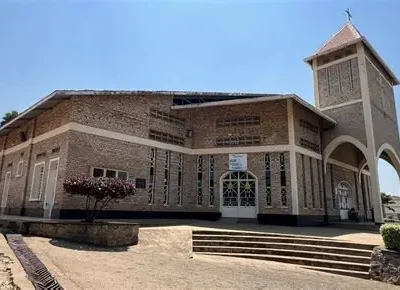ABUJA — As torrential rains continue to batter the country, the Federal Government has issued a fresh flood warning for 76 locations across 19 states, raising the alarm over rising death tolls and mass displacement triggered by weeks of relentless downpours.
The National Flood Early Warning Systems Centre, under the Federal Ministry of Environment, on Tuesday forecasted intense rainfall from August 5 to August 9, warning that the predicted downpour could worsen flooding already ravaging parts of the country.
The warning comes as a humanitarian crisis unfolds nationwide, with the National Emergency Management Agency (NEMA) confirming on Tuesday that 191 lives have been lost to flood-related disasters so far in 2025. At least 94 people remain missing, 48,000 displaced, and 134,435 persons affected across 20 states and 47 local government areas.
States On Alert
The high-risk states include Akwa Ibom, Bauchi, Cross River, Ebonyi, Nasarawa, Benue, Kaduna, Katsina, Kano, Kebbi, Plateau, Taraba, Jigawa, Yobe, Zamfara, Sokoto, Borno, Gombe, and Niger. The flood-prone areas within these states have been advised to initiate precautionary measures immediately.
In Lagos, Delta, Ogun, Gombe, and Rivers states, widespread destruction is already being reported, with submerged homes, destroyed farmlands, and stranded residents painting a grim picture.
Ogun, Gombe Bear the Brunt
On Tuesday, devastating floods hit Redemption City in Ogun State, submerging parts of the popular RCCG camp during its annual convention. Residents and visitors were trapped, forcing the church to deploy school buses and canoes to ferry stranded people to safety.
In Gombe, at least four people have died, and 278 households have been affected, according to the State Emergency Management Agency. Floodwaters have devastated homes and farmlands across six local government areas.
Lagos: Flash Floods Paralyse Africa’s Largest City
A night of unrelenting rainfall on Monday plunged Lagos into chaos, turning major roads into rivers and submerging entire neighborhoods like Ijede, Lekki, Surulere, Agege, and Alimosho. Viral videos showed residents waist-deep in water as traders abandoned goods and transport systems collapsed.
The hashtag #LagosFlood trended nationwide, with citizens decrying years of poor drainage systems and failed urban planning.
NEMA Dashboard Paints Dire Picture
According to updated NEMA figures:
- 191 dead
- 94 missing
- 239 injured
- 48,056 displaced
- 9,499 homes damaged
- 9,450 farmlands affected
Children, women, and the elderly remain the most vulnerable, with over 60,000 children already impacted by this year’s floods.
Government Intervention and IDP Camps
Following the escalating disaster, the National Economic Council has approved N3 billion each to all 36 states and the FCT to fund flood mitigation. IDP camps have also been activated in states like Delta, where six facilities have been set up in high-risk zones.
Delta’s Commissioner for Environment, Jamani Ejiro, assured residents of swift intervention, adding that a Flood Disaster Management Committee had been inaugurated.
A Nationwide Crisis
- In Kebbi, a three-hour downpour left dozens homeless in Diggi Town.
- In Plateau, over 50 homes and schools were destroyed by a violent storm in Shimankar District.
- Imo reported 34 submerged villages, forcing mass relocation.
- Bayelsa, Bauchi, Sokoto, and Benue are bracing for further damage as rain forecasts continue.
Experts Call for Emergency Action
Environmental advocates are now urging the Federal Government to declare a state of emergency on flooding. Dr. Fyneface Dumnamene, Executive Director of Youths and Environmental Advocacy Centre, said: “We can’t stop the rain, but we can stop the suffering.”
He called for aggressive drainage clearing, sustainable flood control infrastructure, and nationwide sensitisation.
The Bigger Picture
Flooding has become an annual nightmare in Nigeria. In 2024, over 5 million people were affected, with 1,237 deaths recorded across 35 states. Experts warn that without urgent, coordinated action, 2025 may see even worse devastation.
With more heavy rain expected in the coming weeks, millions of Nigerians remain at the mercy of rising waters — and a system struggling to keep up.




















Comments